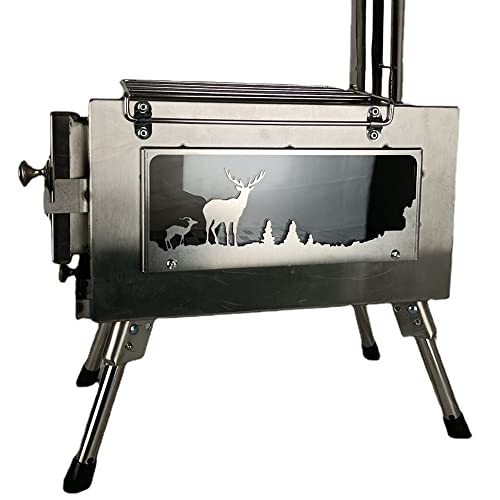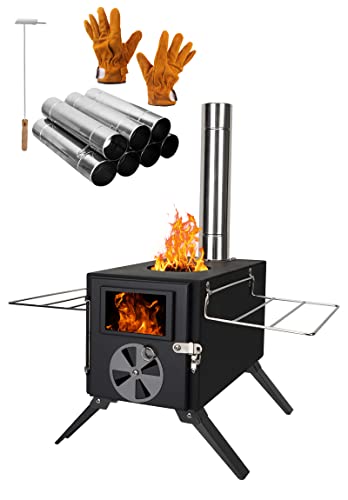How To Outsmart Your Boss On Stove Wood Burning
페이지 정보

본문
 How to Properly Start a Wood Burning Stove
How to Properly Start a Wood Burning StoveWood stoves are a comfortable way to heat a room and save energy. However, they require an amount of care.
Many contemporary modern wood burning stove wood stoves conform to EPA emissions guidelines. You can look for an EPA sticker on the grate or under it to make sure your stove doesn't emit harmful pollutants.
How to Start a Wood Fire
The smell and sound of a wood fire can be a pleasant addition to any house. It's important to know how to create a fire on your stove. Incorrect techniques can lead to an unburned fire that doesn't burn effectively and produces smoke or creosote. The following tips will help you begin a fire that is safe and will warm your home quickly and effectively.
Check the condition of your coals and logs before you begin the fire. If they are wet they could smother the flame and stop it from burning efficiently. You might also want to open the flue to let any ash out that has fallen into the stove.
Begin by putting some small, dry newspaper pieces in the stove. This will help ignite the sparks. Once these begin to burn, add a layer of larger pieces of tinder to the top of the pile. This should be done in a crosshatch pattern so there will be air between each piece of wood.
If your wood stove comes with an automatic combustion control, it will automatically supply air to the fire as it expands. This allows the fire to burn continuously without having to open the stove's door frequently to check on it.
It's important to avoid using excessive tinder as it can cause an unburned fire that burns at an extremely high rate and fails to utilize the fuel as efficiently as it can. Once you've got a good foundation in your stove that is made of igniters, tinder, and embers begin the main flame by laying two large logs of the base on the grate. On top of these base logs lay a layer parallel to them. This method of building an ember called a "top-down" fire can result in a successful and long-lasting fire that will not engulf the larger base logs.
Once the fire is established shut off the damper and ensure it stays closed. If you open the damper too early, it can cause the fire to get smothered and not allow for proper airflow, which will reduce its efficiency.
Adding Wood
Stoves can be used to efficiently heat your home and also save you money. They can be used on their own or together with central heating or a furnace system to provide the supplemental heat required in large houses or homes with multiple rooms. A lot of the clean burning stoves that are available today utilize advanced combustion principles that separates the burning volatile compounds from combustible gasses as well as tar. This is accomplished by supplying air in two distinct stages. The first stage allows for the burning of volatile compounds and the second stage provides fresh air that is pre-heated. This improves combustion and decreases smells.
The amount of heat that you can get from a stove will depend on the species and moisture content of the wood and also the dimensions of logs. To allow the wood to dry, the logs should be stored in a ventilated space for a couple of months prior to burning. If the logs contain excessive moisture, they will produce steam which is essentially wasted power.
While you're burning the fire, it is recommended to add more wood to the stack at intervals, not all at all at. Adding too much wood at once can cause the temperature of the firebox to increase and creates a vortex that draws smoke and unburnt volatile compounds back into the flame, which can decrease the efficiency of your stove.
Avoid burning other combustibles in your stove such as paper or cardboard, as they are not wood. They have different physical properties and cannot be burned without producing dangerously high temperatures. Also, avoid using compressed combustibles such as wood briquettes as they have a very different chemical and physical properties from actual firewood and are not suitable for burning in wood-burning Woodburning stoves near me.
It is essential that a professional install and test your wood burning stove. A certified WETT technician will test the stove for proper operation and safety, as well as ensure that your chimney is functioning properly. They offer maintenance services for your stove and chimney to ensure they remain in top condition. They can look for leaks in the areas that are accessible to your chimney and repair any problems they find. They will also ensure that all residents of the house understand and adhere to the fire evacuation procedures in the event of an accident.
Adjusting the Damper
A damper controls how much heat escapes through the chimney when you aren't using your stove. In addition to this it can help you manage the fire. If the flue is open but the damper is closed too much the fire won't be able to burn properly and it will billow out smoke into your living space. You can adjust the damper to get the best wood burning stoves flames by experimenting with different locations.
Typically, you want to keep the damper open enough to let air flow in and out of the flue when a fire is burning. This allows the fire to get going and helps it stay in good shape so that you can enjoy it for long periods of time. A proper opening will stop the fire from becoming starved of air and will keep it from blowing smoke.
To properly adjust your damper you need to first ensure that the fireplace is heated and the wood stove is hot. This will ensure the chimney is warm, and it also has a good draft. Once these are done the wood stove damper can be adjusted.
Once the fire has smolder a bit you should shut the damper down to about three-quarters of its original position. This will stop the warm air from the room from going through the chimney, while allowing smoke to escape from the wood stove.
This is the most effective way to stop the fire from becoming too hot while keeping it lit. The draft might be stopped if you shut the damper too far but a cold wind could enter your home when the damper is not closed.
Holding your hand at the top of the flue pipe will inform you how much the damper has opened. If you feel a small breeze pushing against your palm, the damper is likely to be open.
The damper setting can vary a little from one stove to the next and even between different types of wood. You can experiment with various settings to get a sense of the ideal setting for your stove.
Clean Up
It is important to clean your chimney and stove after the start of a fire. This can to reduce the chance of a chimney fire, which is the main reason for wood stove-related fires in homes. Creosote, a sticky substance which can build up inside the stovepipe, is very dangerous. Unburned and moist particles of wood that are unable to escape the fire are the cause for this chemical. It could also be caused by poorly lit fires.
Regular cleaning helps keep away the buildup of creosote. The best wood burning backpacking stove way to do this is to sweep the chimney every year. It is recommended to have your fireplace and stove professionally inspected and cleaned at least once per year, too.
Also, it's a good idea for you to clean the ash tray and the grates regularly. It is recommended to burn only wood that is well-seasoned, as it will produce less creosote. It is also a good idea to avoid burning paper, corner wood burning stove cardboard or plastic items. They can release harmful chemicals for the respiratory tract and the air, and could be released into your home.
It is also necessary to clean the glass of the outdoor wood burning cookers stove on a regular basis. Many modern wood stoves come with self-cleaning windows, so they don't require as much scrubbing. You can apply stove glass cleaners to the window if you're getting the glass as clean as you would like on your wood stove.
Other ways to keep your wood stove in good condition include turning down the vent when you're not using it, and opening doors or windows to increase airflow. This will keep the fire burning hotter, and more efficiently. The wood stove won't have to be as active to circulate air. It is a good idea not to stack logs or leave them on the fire for a long period of time. This can cause splits and warping. It is recommended to avoid using combustible wood that has been compressed in your wood stove since the paraffin in the logs can melt and leak into the flue and cause damage.

- 이전글Are You Tired Of Wood Burning Stove Modern? 10 Sources Of Inspiration That'll Revive Your Passion 24.11.01
- 다음글Pet Wellbeing: A whole Information To Caring For Animals 24.11.01
댓글목록
등록된 댓글이 없습니다.

